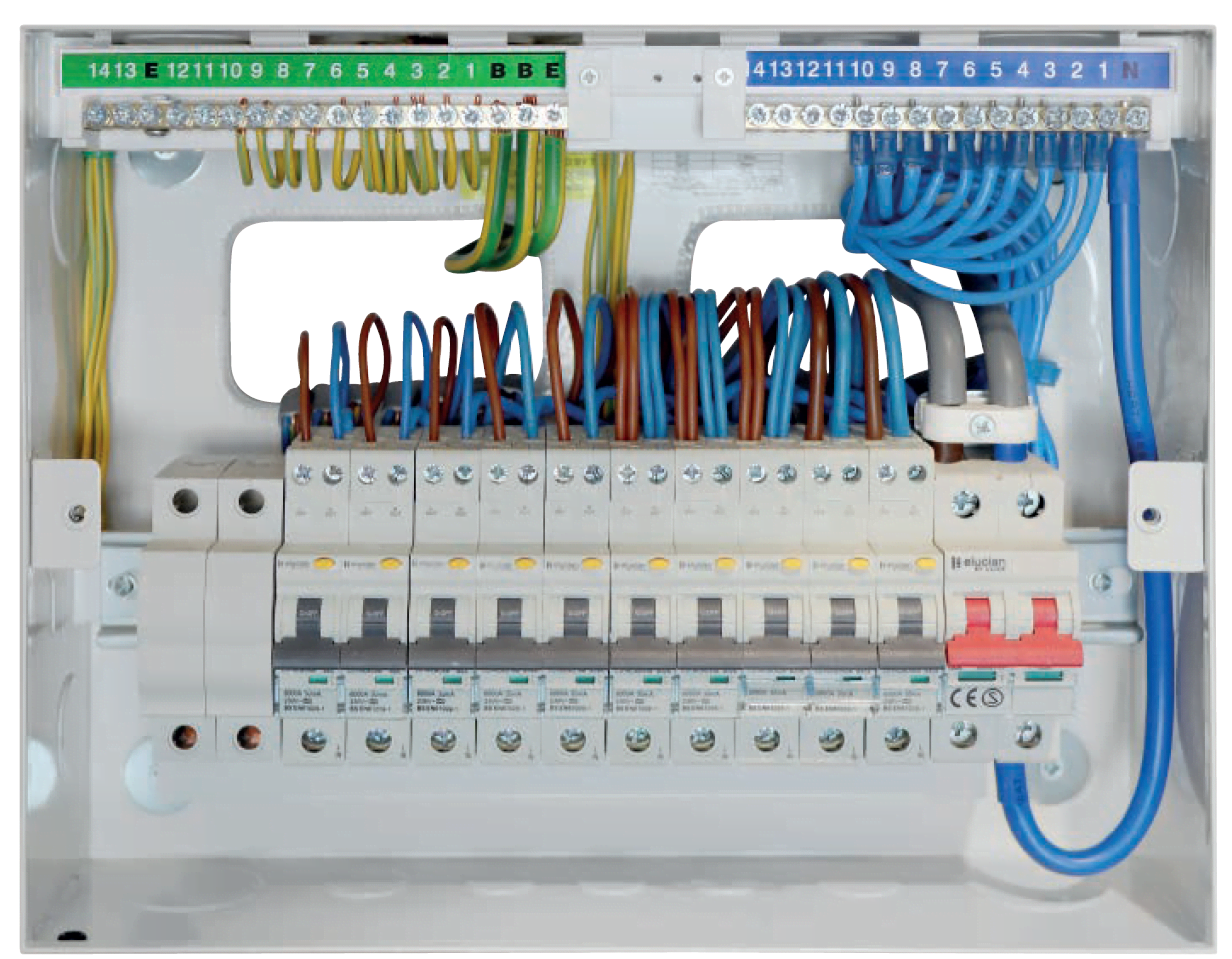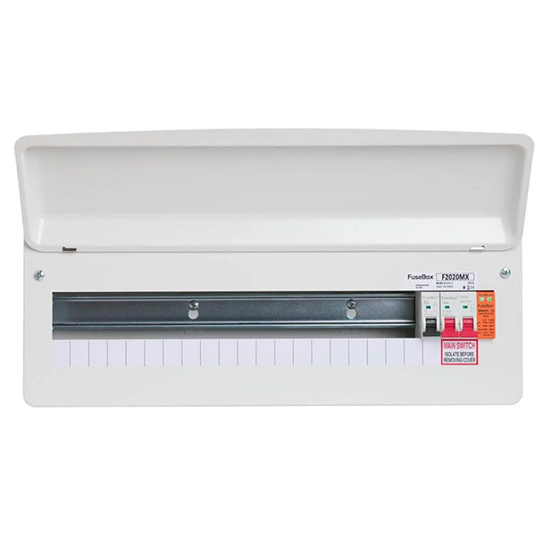The Function of Customer Units in Reliable Energy Administration Systems
Consumer devices are essential to effective energy administration systems, offering as the key circulation factors for electric power within frameworks. The introduction of wise modern technologies has even more boosted their performance, allowing for real-time information tracking and nuanced power usage evaluation.
Recognizing Consumer Devices

Recognizing the duty of customer systems starts with identifying their essential function in safeguarding electrical systems. By separating mistakes within certain circuits, customer units protect against prevalent failures and prospective fire hazards. This seclusion is attained via using circuit breakers that trip or fuses that blow when a mistake is found, therefore reducing off the electric flow to the affected circuit.
Moreover, customer systems assist in the organized circulation of power, boosting the effectiveness of power use. They permit the methodical management of electrical loads, which can be specifically essential in commercial and industrial settings where need can change substantially. Correctly kept consumer units add to the longevity of electric systems and assist in minimizing downtime brought on by electrical failures, inevitably supporting the smooth operation of energy-dependent centers.
Smart Technologies Combination

A key advantage of wise customer systems is their ability to utilize advanced formulas and artificial intelligence for anticipating analytics. This enables preemptive changes based on use patterns, climate forecasts, and various other variables, significantly increasing total effectiveness. Wise customer systems promote demand response programs, where power use can be dynamically adjusted throughout peak periods to support the grid and lower costs.
The combination of renewable resource resources, such as solar and wind, is additionally streamlined through smart consumer devices. By intelligently handling the intermittency of these resources, these devices guarantee a balanced and trustworthy energy supply. Furthermore, clever consumer units enhance individual involvement by giving in-depth understandings and remote control abilities with mobile applications, promoting a much more positive method to power preservation and sustainability.
Surveillance Power Intake
Building on the abilities of smart innovations combination, keeping an eye on energy consumption becomes a crucial focus within power administration systems. Efficient tracking acts as the structure for identifying energy inefficiencies and executing corrective measures. By leveraging advanced metering infrastructure (AMI), real-time data on power usage can be collected at granular levels, providing valuable insights into usage patterns and peak need durations. This data-centric strategy makes it possible for both customers and energy managers to make educated choices intended at decreasing waste and improving general effectiveness.
Smart meters and Net of Things (IoT) gadgets play a pivotal duty in this tracking procedure. These devices can track power usage in real-time, sending data to central systems for analysis. The collected data is after that refined via advanced algorithms to identify abnormalities, forecast future usage, and recommend optimization strategies. In addition, cloud-based services provide scalable systems for keeping and analyzing huge datasets, promoting remote monitoring and control.
The assimilation of these modern technologies not only empowers consumers with thorough info concerning their energy use but additionally supports energy providers in managing tons distribution better. Eventually, accurate and constant monitoring is essential for achieving power efficiency, price savings, and sustainability goals within energy administration systems.
Optimizing Home Appliance Usage

One effective method involves identifying optimal and off-peak hours to change energy-intensive activities, such as washing or dishwashing, to times when power need is reduced. This not just lessens pressure on the grid however likewise profits from lower energy tariffs. Furthermore, integrating artificial intelligence formulas permits predictive upkeep, making sure appliances run at optimum performance and lengthening their life expectancy.
Energy monitoring systems can likewise incorporate user-specific choices and habits to customize device usage schedules. Smart lights systems can adjust illumination based on tenancy and natural light accessibility, while HVAC systems can keep comfort degrees without extreme power usage.
Supporting Sustainability
Advertising sustainability within power monitoring systems includes not just improving efficiency however also cultivating environmentally responsible practices. Consumer systems are important to this process, as they provide real-time information and control systems read this post here that enable customers to keep track try here of and lower their power consumption. By leveraging advanced innovations, customer devices can recognize energy-saving chances and help with the combination of eco-friendly power sources like solar and wind power.
One vital aspect of promoting sustainability is enlightening customers on the benefits of responsible energy use. Through in-depth insights supplied by customer units, individuals can make enlightened decisions that decrease their carbon impact. For circumstances, these devices can advise optimum times for operating high-energy devices based on grid demand and eco-friendly energy schedule, thus decreasing reliance on nonrenewable fuel sources.
Additionally, customer devices sustain the adoption of smart grid innovations, which enhance the general performance and integrity of power circulation. By making it possible for two-way interaction in between consumers and energy companies, these systems can dynamically get used to energy demands, decreasing waste and promoting making use of sustainable energy methods.
Final Thought
Consumer devices, as important components of energy monitoring systems, dramatically improve electric safety and effectiveness within structures with circuit defense and smart innovation assimilation. Additionally, the unification of renewable energy resources advertises sustainable methods, adding to lowered overall power intake and lower carbon footprints.
Developments in clever technologies have actually transformed the capacities of power management systems, especially with the combination of wise customer devices.Structure on the capacities of smart innovations assimilation, keeping track of energy usage comes to be an essential focus within energy administration systems.Reliable device use why not try here optimization is a crucial component of energy administration systems, intending to improve effectiveness and reduce unnecessary energy consumption.Customer devices, as integral elements of power management systems, substantially improve electric safety and security and efficiency within structures via circuit protection and clever technology integration. Additionally, the incorporation of renewable energy resources advertises sustainable practices, adding to reduced total energy consumption and reduced carbon impacts.
Comments on “Exploring the most recent Advancements in RCBO CONSUMER UNITS Innovation”